At IELTS Advantage, we are in a unique position to answer this question because we have two things:
- Data From IELTS Teacher Interview Questions
- The Largest Number of Recorded Band 7, 8, and 9 Success Stories
In this article, we will show you the % of qualified teachers that get basic IELTS questions right and wrong.
We will also show you data from several academic studies that analyse the effect teacher ability has on student test scores.
Finally, we will demonstrate that teacher ability has a bigger impact on student scores than any other factor.
First, let’s start with a quote from Marcus Aurelius:
‘You shouldn’t give circumstances the power to rouse anger, for they don’t care at all.’
Many people get angry when teachers are criticised, meaning no meaningful discussion can occur. Many people come from cultures where teachers are viewed as infallible. Others are influenced by teacher’s unions that protect all of their members.
For any system to flourish, it must be criticised, and those trying to improve that system should leave emotion out of the evaluation. The goal of this article is to improve test scores. If that means angering teachers on the lower end of the ability spectrum or those that protect them, so be it.
I will give no opinion in this article, just facts and data. If you are angry with those, please direct your anger at them, not my team or me.
Teacher Interview Data
The last time we conducted interviews for IELTS teachers, 456 applied for the role.
In the advert, we clarified that teachers should only apply if they had examining experience and be at least CELTA qualified. They also must have many years of teaching experience. In other words, we filtered out those with no experience or skill before they answered any questions.
Of those qualified, experienced teachers, here are their answers to basic questions:
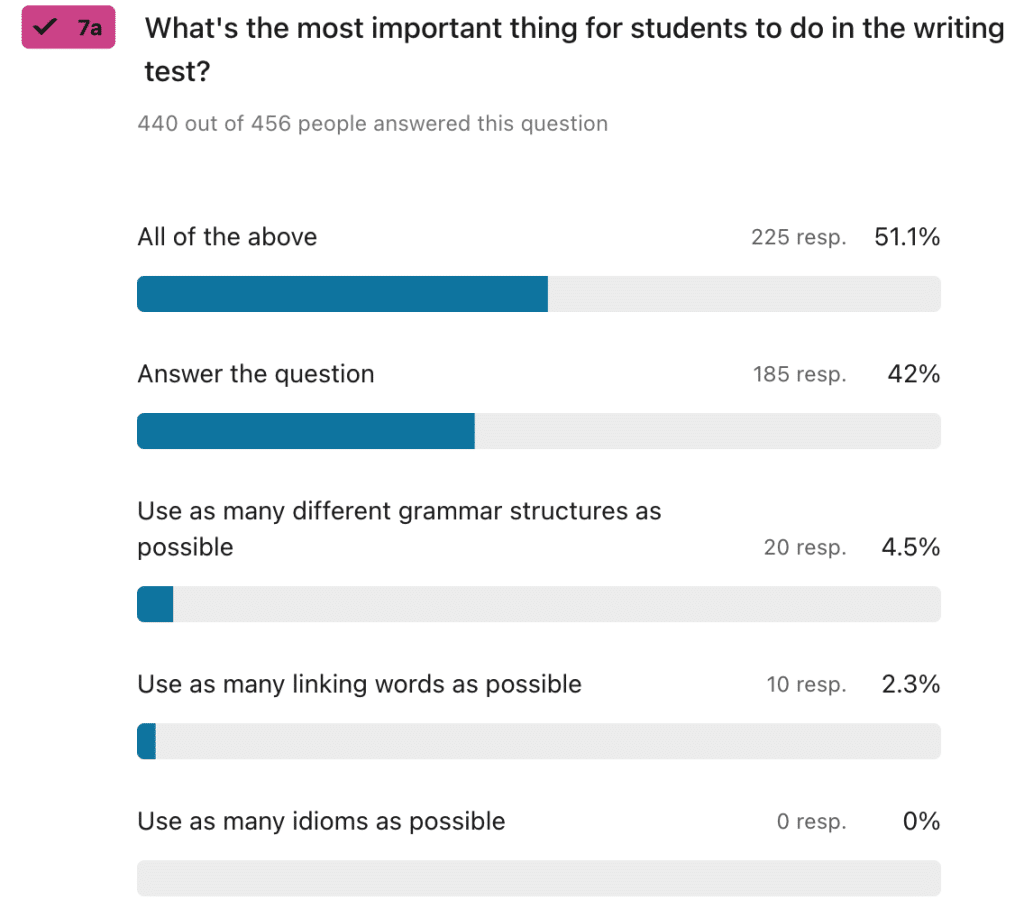
To clarify, most teachers here believe that using as many idioms as possible is important for improving IELTS scores. Nothing in the Marking Criteria indicates that using as many idioms, grammatical structures, or linking words as possible improves Task 2 scores.
Less than half of the teachers got this question correct.
If the remaining majority got these basics wrong in the classroom, they will directly lead to lower scores.
Significantly, only teachers that got the question above correct were allowed to continue answering questions. The data below is only from the 42% of teachers that got the first question correct.
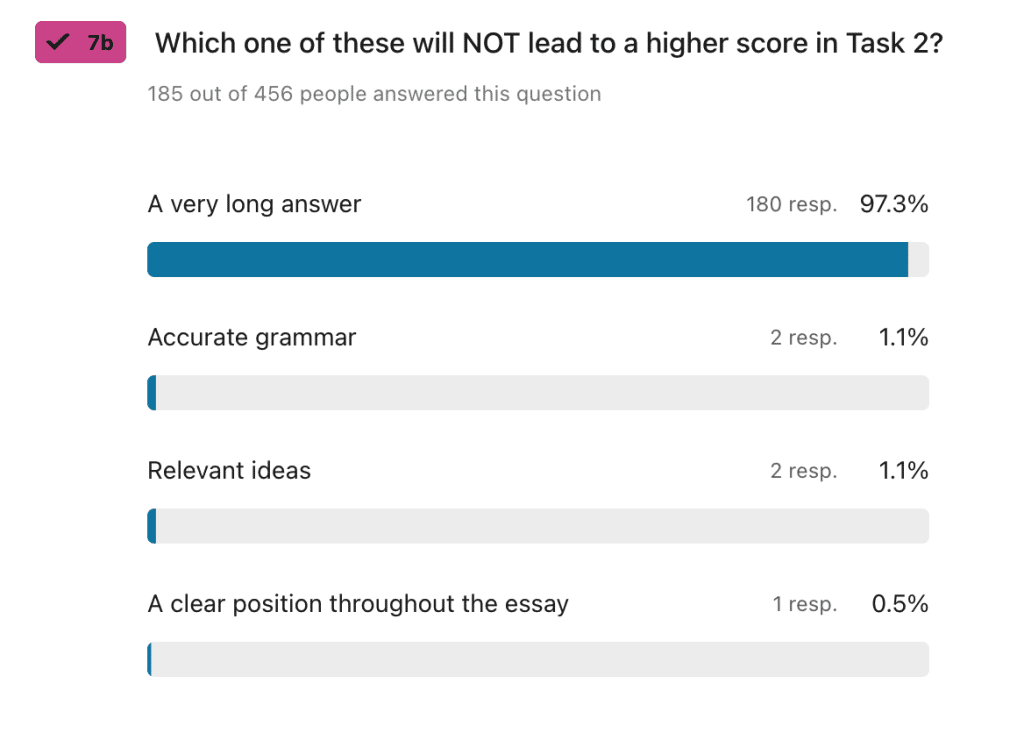
This question had a much higher success rate, with nearly all teachers answering it correctly.
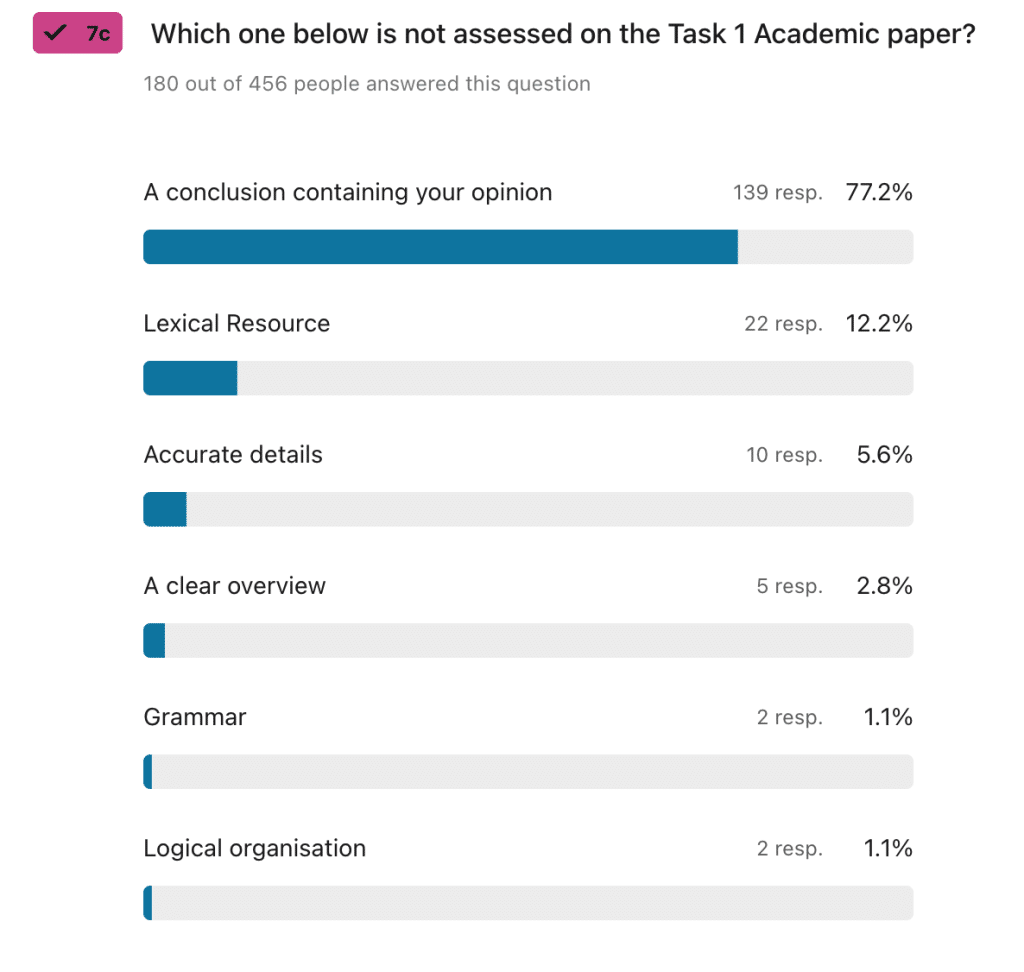
Of the remaining 180 teachers, nearly a quarter got this wrong. This means that in 1 in 4 classrooms with the remaining ‘good’ teachers, students are being taught things that will directly lower their Task 1 score.
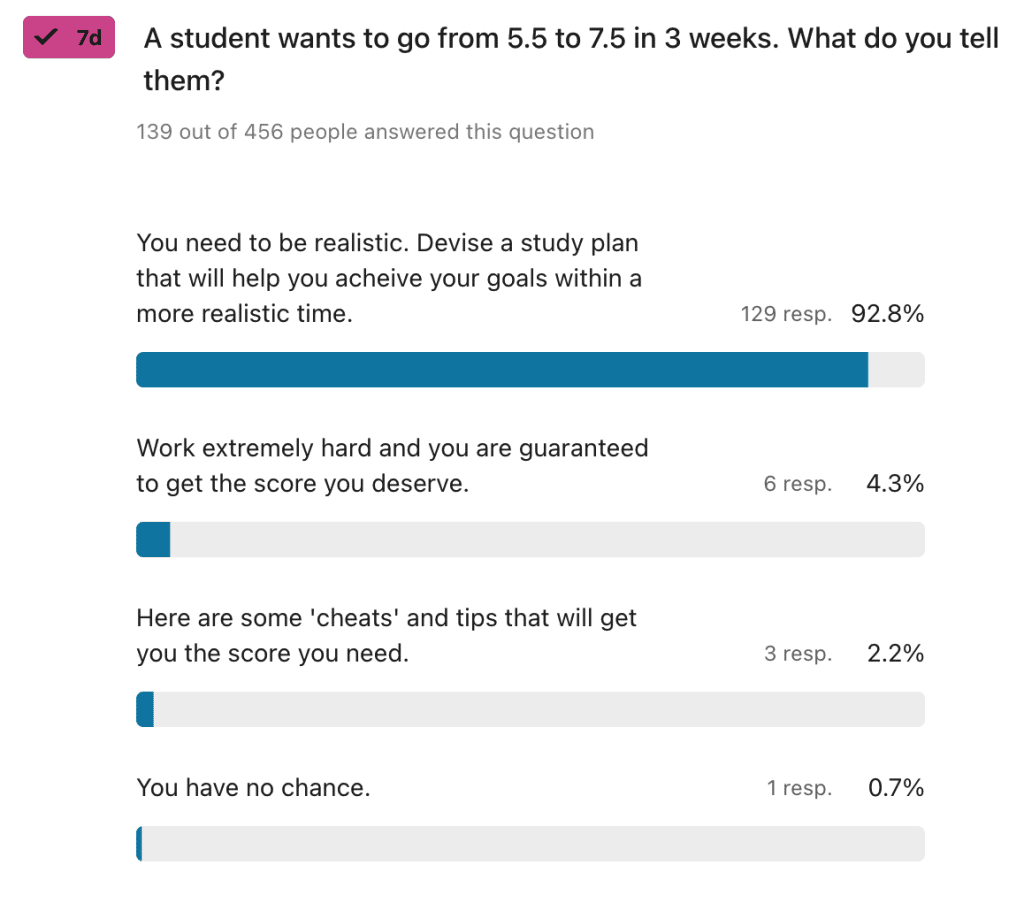
Nearly all of the remaining teachers got this question correct.
Data From Outside of the IELTS Context
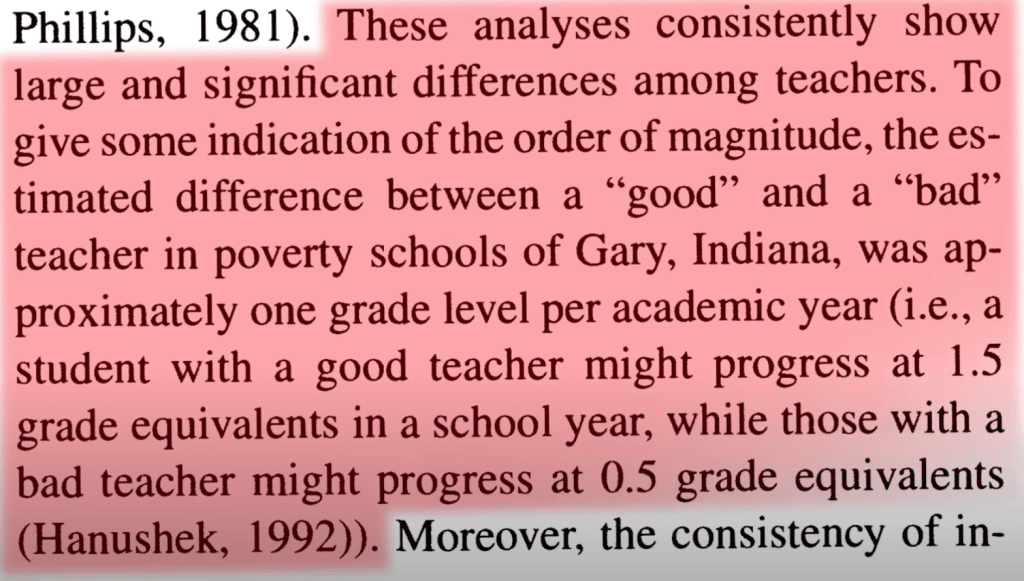
A study conducted in the 1990s found that the best teachers provided 1.5 years of academic growth in each school year, while the least effective only provided 0.5 years of learning.1
Other researchers have reached similar conclusions in Los Angeles, New York, Tennessee, and elsewhere.
Impact
In 2009, Washington DC schools conducted a trial called IMPACT, which evaluated teacher ability. Based on these assessments, the most effective teachers were highly rewarded with annual bonuses of up to $25,000. The least effective were asked to leave.
Since the introduction of IMPACT more than a decade ago, the test scores of students rose higher and more consistently than in any other large US city district with disadvantaged children.
In Dallas, Texas, the best teachers were moved to schools where they were needed the most. Again, the best teachers were given large financial bonuses based on performance. Within 3 years, the worst-performing schools quickly moved up to the average Dallas school results. Student performance in the whole city also improved.
Success Leaves Clues
We have the largest number of video interviews with Band 7, 8, and 9 on our website here. In every single interview, the student attributes their success to either the teaching method, the individual teacher, or in most cases, to both.
We also have the largest number of thank you notes from Band 7, 8, and 9 students here. You can see that nearly every student indicates their success was brought about by their teachers.
We hire less than 1% of the teachers that apply to work with us because of the impact teacher performance has on student scores.
Does Your Teacher’s Effectiveness Affect Your IELTS Score?
4 things are clear from this article:
- Most qualified teachers fail to answer basic IELTS questions correctly.
- Teacher effectiveness and student scores are positively correlated in the IELTS context and education more broadly.
- The students with the highest IELTS scores nearly always attribute their success to their teachers.
- The IELTS course with the largest number of recorded success stories Band 7, 8, and 9 students hires less than 1% of IELTS teachers that apply to work there.
If you would like to become our next success story, feel free to get in touch- chris@ieltsadvantage.com
Sources:
https://www.hoover.org/research/economic-cost-pandemic
https://www.hoover.org/sites/default/files/research/docs/hanushek_webreadypdf_revised2.pdf
https://sites.nationalacademies.org/cs/groups/dbassesite/documents/webpage/dbasse_160397.pdf



